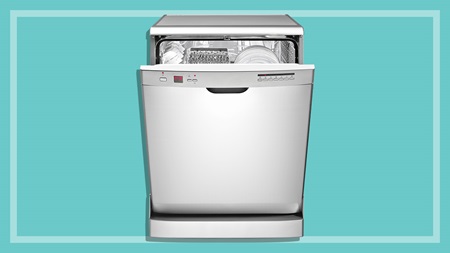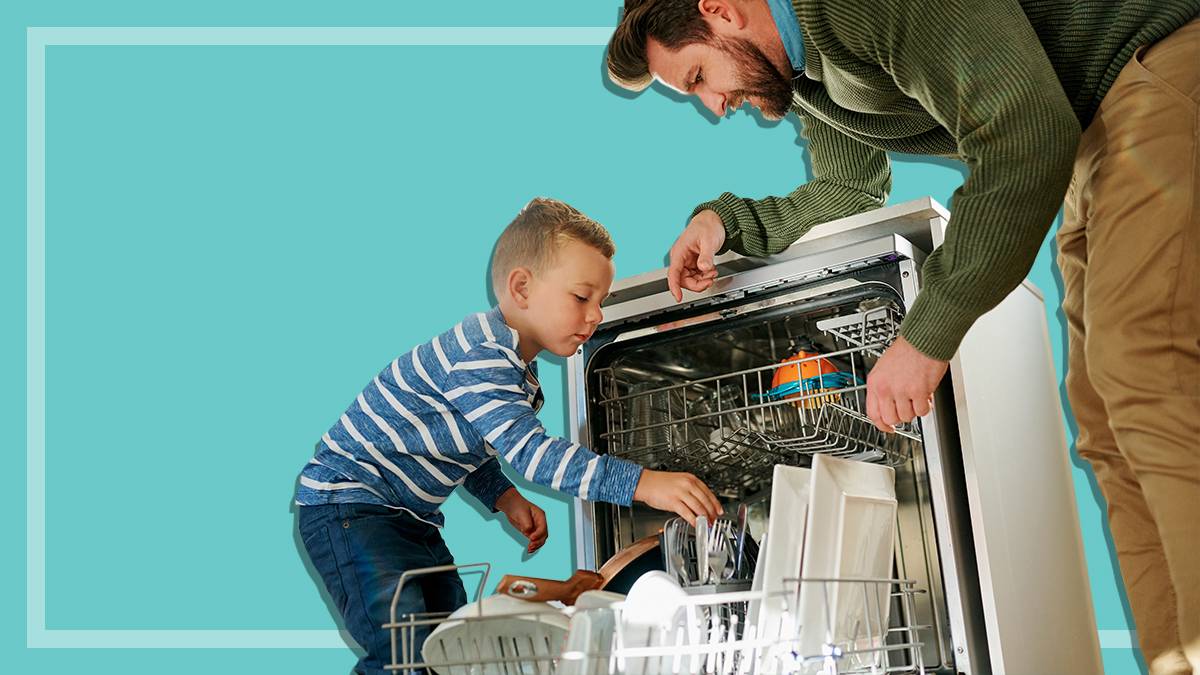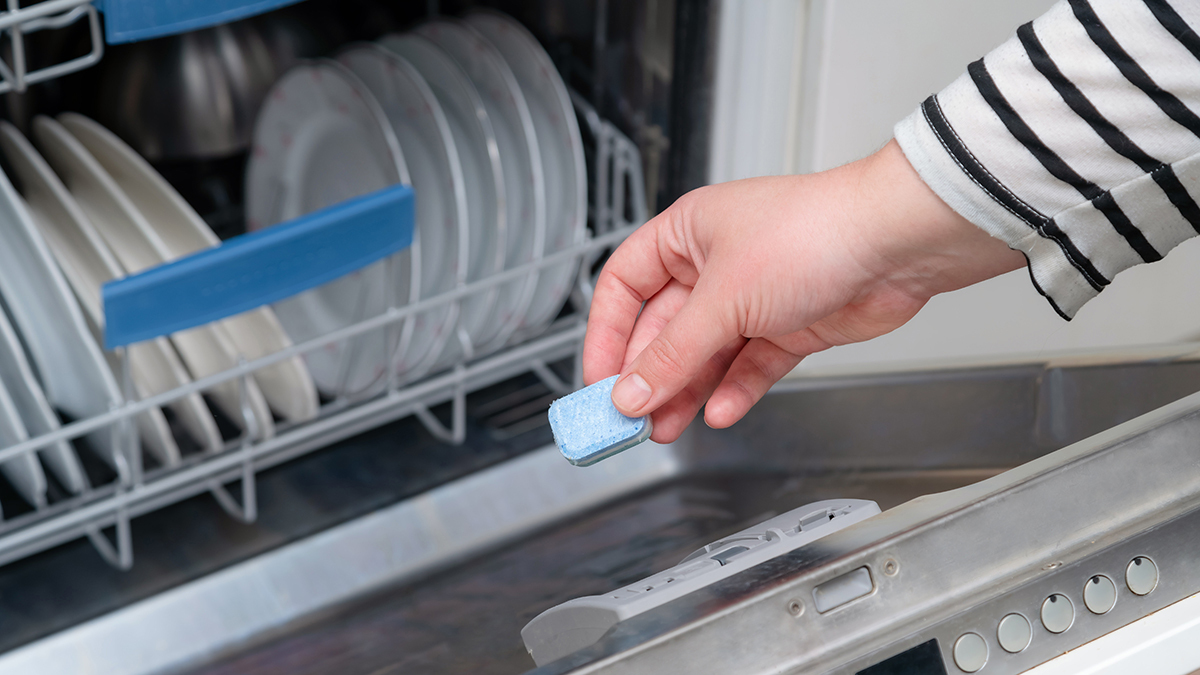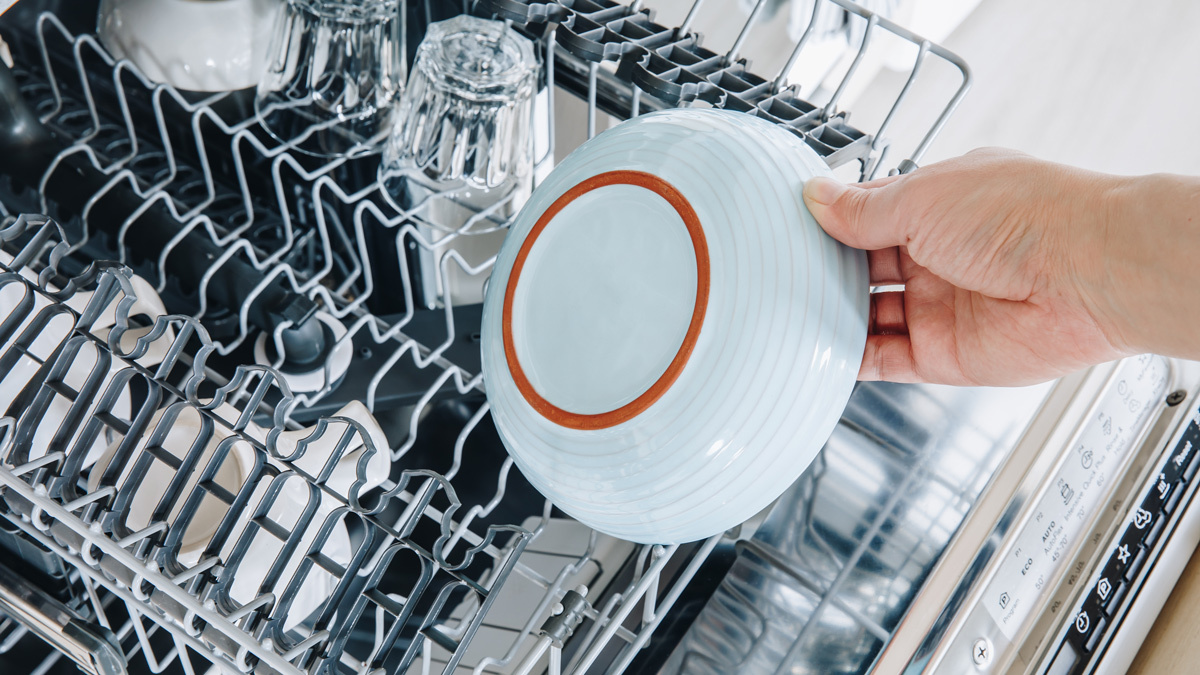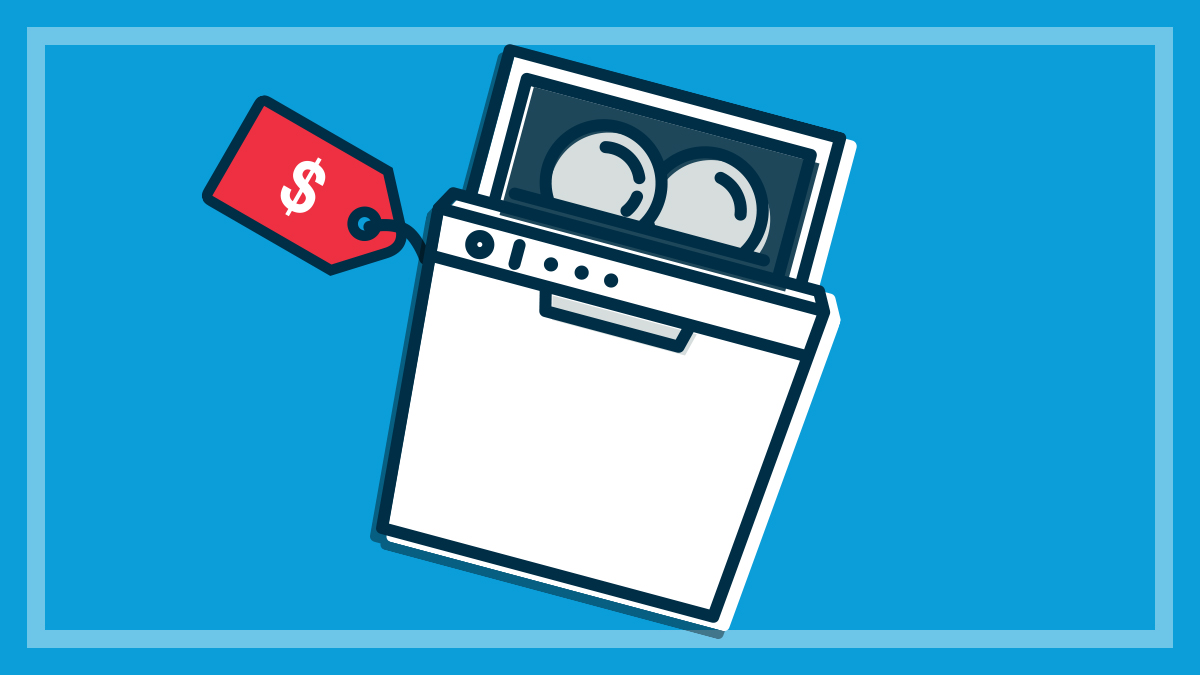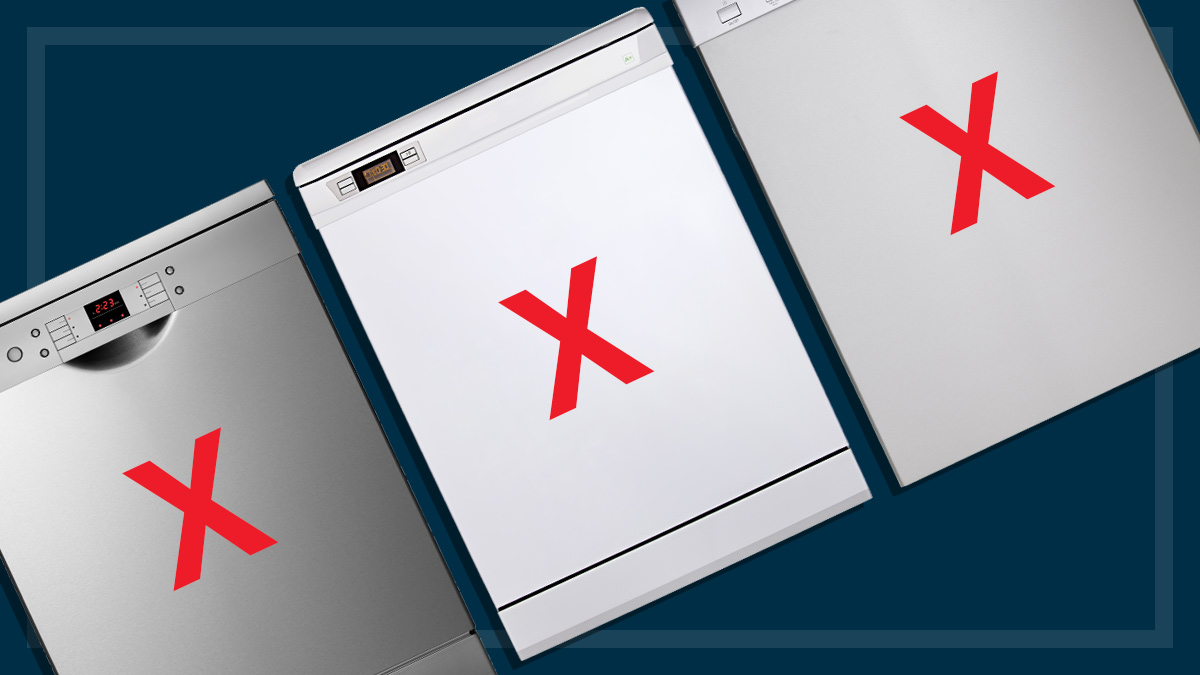Get our independent lab tests, expert reviews and honest advice.
Washing hacks to save you time, water and money
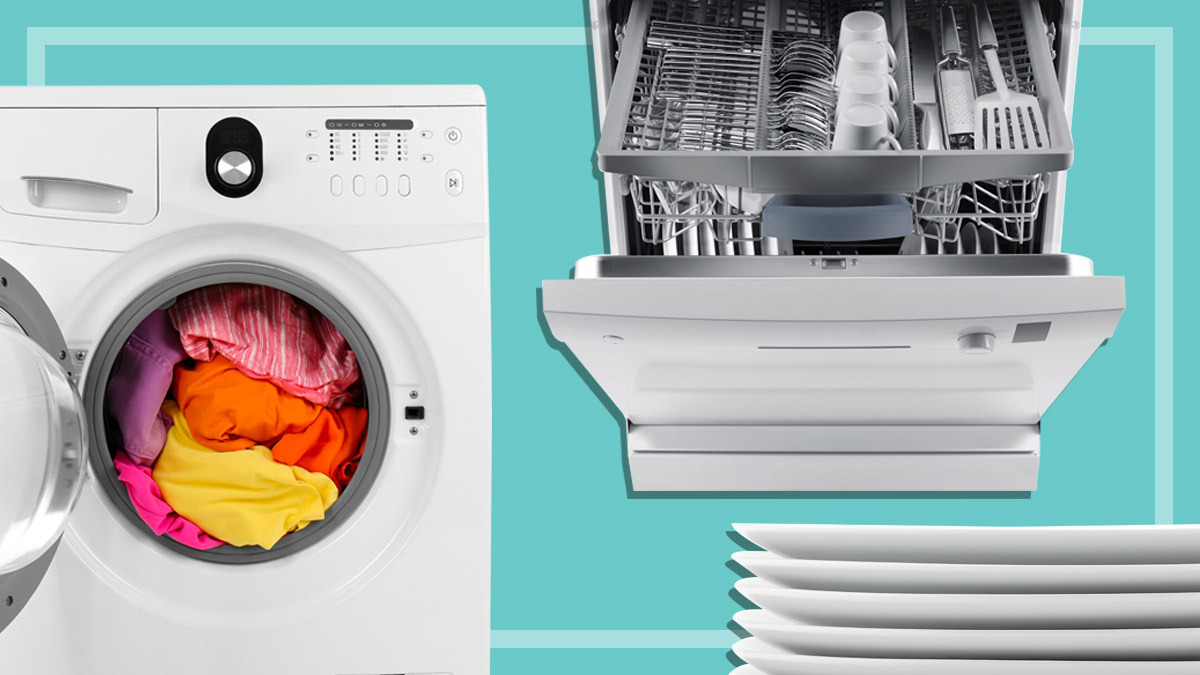
We spend a large portion of our lives washing clothes and cleaning dishes, so why not make these tasks as easy as possible, while saving a little cash and as much water as possible along the way?
Our expert tips will help you get the most out of your washing machine and dishwasher – and help make sure these big-ticket items last as long as they should. We’ll also reveal which bargain dishwashing liquids to add to your shopping list.
Tips for washing dishes
1. Don’t wash by hand
Our CHOICE experts all agree, using a modern dishwasher on a full load is more water- and energy-efficient than washing your dishes by hand. So it’s a win-win on saving you time and money!
A dishwasher uses only a sixth as much water as washing by hand
Ashley Iredale, CHOICE whitegoods expert
“OK, so it’s not exactly a hack,” says CHOICE whitegoods expert Ashley Iredale. “But a typical modern dishwasher uses only a sixth as much water as hand-washing a typical pile of dirty dishes, and getting the water in your sink hot enough to do the dishes takes nearly twice as much energy as you’d use running your dishwasher.”
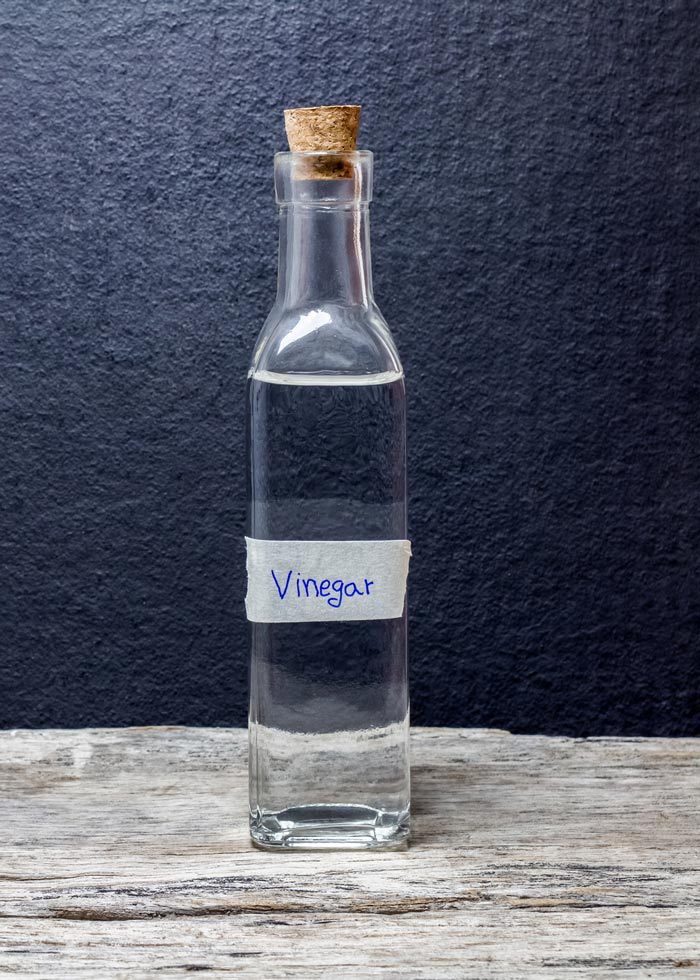
2. Clean your dishwasher with vinegar
Use this clever – and cheap – hack to remove soap build-up and odours, and give your dishwasher a little TLC to help ensure it lasts as long as it should (about 11 years, according to our experts).
Pour 1–2 cups (250–500mL) of vinegar into a bowl on the top or bottom rack, then run the machine through a full cycle with no dishes or detergents.
There’s no need to scrub the interior of the dishwasher – this could damage or discolour the stainless steel.
Why pour the vinegar into a bowl and not just tip it straight in? Many dishwashers run their drain pump at the start of the cycle, and this would pump your vinegar straight down the drain. Using a bowl keeps the vinegar in the machine where it’s needed.
Note: Check your manual first, as some manufacturers advise against using vinegar to clean certain models.
3. Save time and water: Don’t rinse!
Our expert testing has found that rinsing dishes before you put them in the dishwasher doesn’t make any difference to how clean they’ll come out at the end.
But do scrape off any large bits of food residue, otherwise they’ll accumulate in your dishwasher.
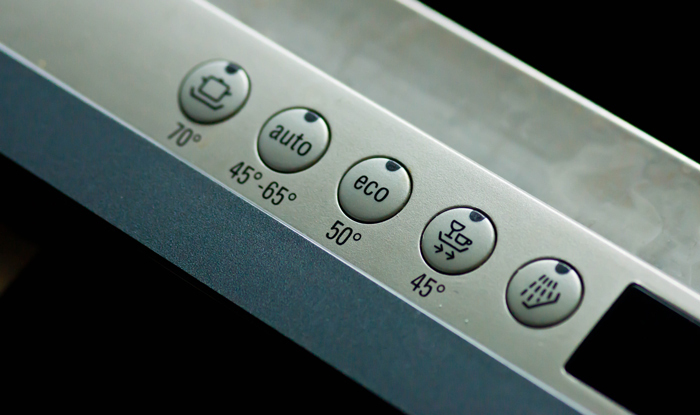
4. Turn up the heat
Run out of dishwasher tablets or dishwasher detergent and got a pile of dirty dishes you really don’t want to do by hand?
We’ve found that many recipes for DIY dishwasher liquid or natural alternatives don’t work very well.
What might work if you’re desperate, though, is turning the temperature up and doing a cycle with plain water – our extensive tests show this will still clean lightly soiled dishes (and perhaps leave you with a little less to wash up later).
5. Buy a cheap washing liquid – that works
Sick of wasting money on expensive dishwashing liquid? Our experts have done the hard work for you and put 50 supermarket dishwashing liquids to the test to find out which is best.
And their hack? Go to Aldi and buy their Tandil Ultra Power Soak dishwashing liquid or the Aldi Tandil Ultra Quick Dry dishwashing liquid.
They both scored 90% in our recent test and they’re a bargain to boot – just 40 cents per 100mL. That’s around a quarter of the price of other top-scoring detergents from well-known brands such as Morning Fresh and Fairy.
The most expensive detergent we tested, Koala Eco ($2.60 per 100mL), scored 70% but costs a huge 6.5 times as much as Aldi’s top scorers!
“These Aldi detergents are streets ahead in terms of performance and price – a win for both your dishes and your pocket,” say CHOICE experts.
6. Explore new ways to use it
Once you’ve got your cheap and effective dishwashing liquid, explore all the other things you can clean with it.
It’s great for cleaning windows (just mix with warm water and a drop or two of rinse aid) and for removing light stains from clothes (if you’ve spilled some spag bol on your shirt, just rub it with a bit of dishwashing liquid and water). It also takes care of grease stains on fabrics.
You can also use it to wash makeup brushes and hairbrushes, and it works wonders for cleaning and shining jewellery – mix with a little soda, then soak and scrub with a toothbrush.
Tips for washing clothes
7. Wash on cold water (yes, your clothes will still get clean)
You’ll get pretty much the same cleaning power from a cold wash as from a warm wash – but you’ll use far less electricity and save yourself over $100 per year in the process. Warm water is still slightly better than cold water, but there’s very little between the two – and certainly not enough to justify the extra cost.
And washing in hot water can actually make things worse by setting stains in, so a cold wash can help you get a good clean.
Washing in hot water can actually make things worse by setting stains in
“Washing in warm water is slightly better than washing in cold, but it’s so close these days that it’s not worth the extra energy and cost of a warm cycle, particularly with modern enzyme-based detergents that are designed for cold-water washing,” says Ashley.
According to our calculations, if you were to switch from washing a half load every day on a warm wash, to washing a full load every day on a cold wash, you could save yourself $135.85 a year. That’s not to be sniffed at!
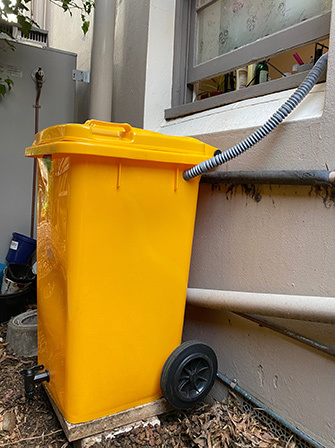
8. Convert a wheelie bin to reuse your greywater
Try this affordable hack to reuse greywater from cleaning your clothes to save water.
Rig up a hose from your washing machine and feed it outside to collect in a tank, or, as our clever CHOICE staff member Alice did, in a wheelie bin. Then you can use the water on your garden and save hundreds of litres in the process.
“We wanted to put a small water tank outside to capture greywater from the washing machine, but the hardware store had sold out of all the water-saving products,” says Alice. “Instead, we settled on a 100L wheelie bin – it holds the same amount of water but it’s about half the price.
“We rigged it up with an inlet for the greywater extension hose near the top and a tap kit at the bottom. Our backyard is on a slope, so we can hook a regular garden hose up to the bin and gravity takes care of distributing the water onto the lawn.
“All up we spent about $100 and a couple of hours to set it up. Now our lawn is lush and green again – without us increasing our water use!”
9. Brighten up!
Brighten your colours and whiten your whites without using expensive and non-eco-friendly bleaches with – yes, you guessed it – good old vinegar! Try adding about one cup to your load.
Vinegar is also a great alternative to fabric softeners, which are expensive and damaging to the environment. Check your washing machine manual before using though to ensure it doesn’t warn against using vinegar in your model.
10. Swap commercial washing machine cleaner for a hot wash
Commercial washing machine cleaner is expensive and largely unnecessary, say CHOICE experts.
Keep your washing machine clean and in good working condition with this simple trick: if you regularly wash in cold water, run the occasional very hot empty cycle, with just a bit of good-quality detergent in the dispenser, and it’ll help keep scrud at bay. Also, ditch fabric softeners as they add to build-up.
11. Be wary of ‘magic’ hacks
Although you can safely avoid commercial washing machine cleaners, whatever you do, don’t be tempted to use other products instead.
Some people claim using dishwashing tablets to clean your washing machine will give miracle results. But our expert Ashley does some myth-busting: “This may work initially,” he says. “But I wouldn’t recommend it.
“Washing machines aren’t designed to deal with highly caustic dishwasher detergents, so doing this may damage seals and hoses over time – which could also void your consumer guarantee or warranty as the manufacturer may say you didn’t follow proper instructions.”

